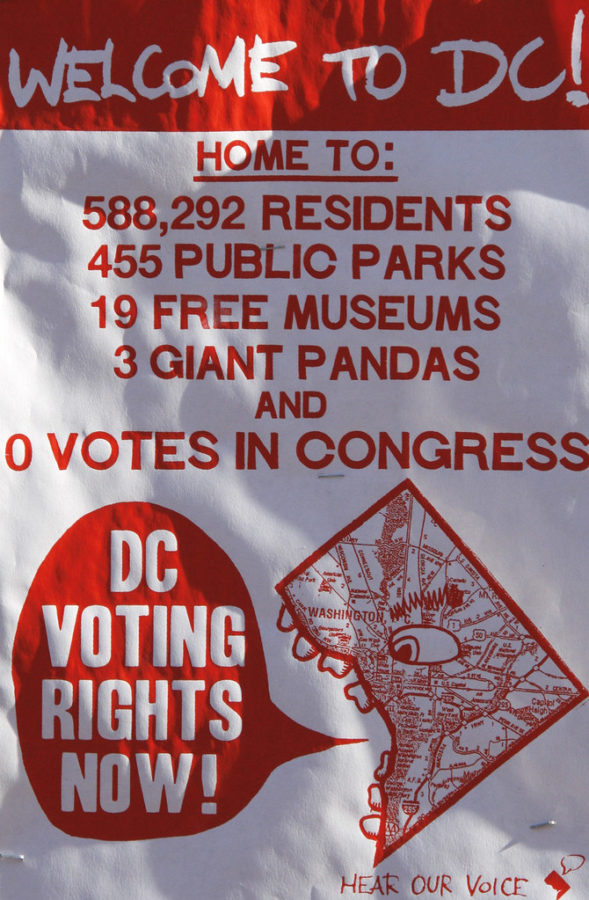Opinion: D.C. should become the 51st state
“DC Voting Rights” by dbking is licensed under CC BY-NC-SA 2.0
A flyer hangs demanding statehood for D.C. The House of Representatives passed a bill in favor of D.C. becoming a state.
May 14, 2021
“No taxation without representation”. That was the motto of early American patriots fighting against the British for independence. Yet some 200 years later, I and other American residents of the District of Columbia still find ourselves bearing the responsibilities of citizenship without its full rights or privileges.
As a resident of Washington, D.C. I have felt the full repercussions of this and believe that D.C. must become the 51st state to ensure that the district’s people are politically represented.
Recently, as the movement for statehood has become widespread, the government has moved to rectify the situation. Currently, the bill that would potentially make D.C. a state has passed the House of Representatives with a vote of 232-180 and is awaiting a vote in the Senate.
D.C. residents pay more taxes on average than residents in 22 other states, serve in the military, sit on juries and work for public services, but still do not receive the same voice in government that others do. For example, D.C. has no voting delegates in the House of Representatives and no representation in the Senate at all.
The population of the district is also not a problem. Larger than both Vermont and Wyoming, D.C. has a large enough population to be a state, but its residents find themselves denied of their full rights time and time again.
Giving statehood to D.C. would have a significant effect on the government and the political balance of power. The main reason that D.C. is not a state yet is that the Republican party does not want to give fair representation to the majority-Democrat population of the district.
D.C.’s lack of federal representation is also a matter of racial inequality: 47% of the district’s population is African-American. If D.C. were to become a state, more Black people would be represented in our federal legislature, which would be a step forward in giving a voice to previously underrepresented minorities.
The issue is also a matter of health and safety. Earlier in the year, D.C. was denied emergency funds in response to COVID-19 under the CARES Act. They requested $755 million, which was the amount given to the least populous state, but they were denied funds even though D.C.’s population is larger than that state.
D.C.’s residents are being treated as second-class citizens and the safety and health of hundreds of thousands of people are at risk. The residents of D.C., including myself, deserve to have the same rights and representation that other states have which can only be done by making D.C. the 51st state.








